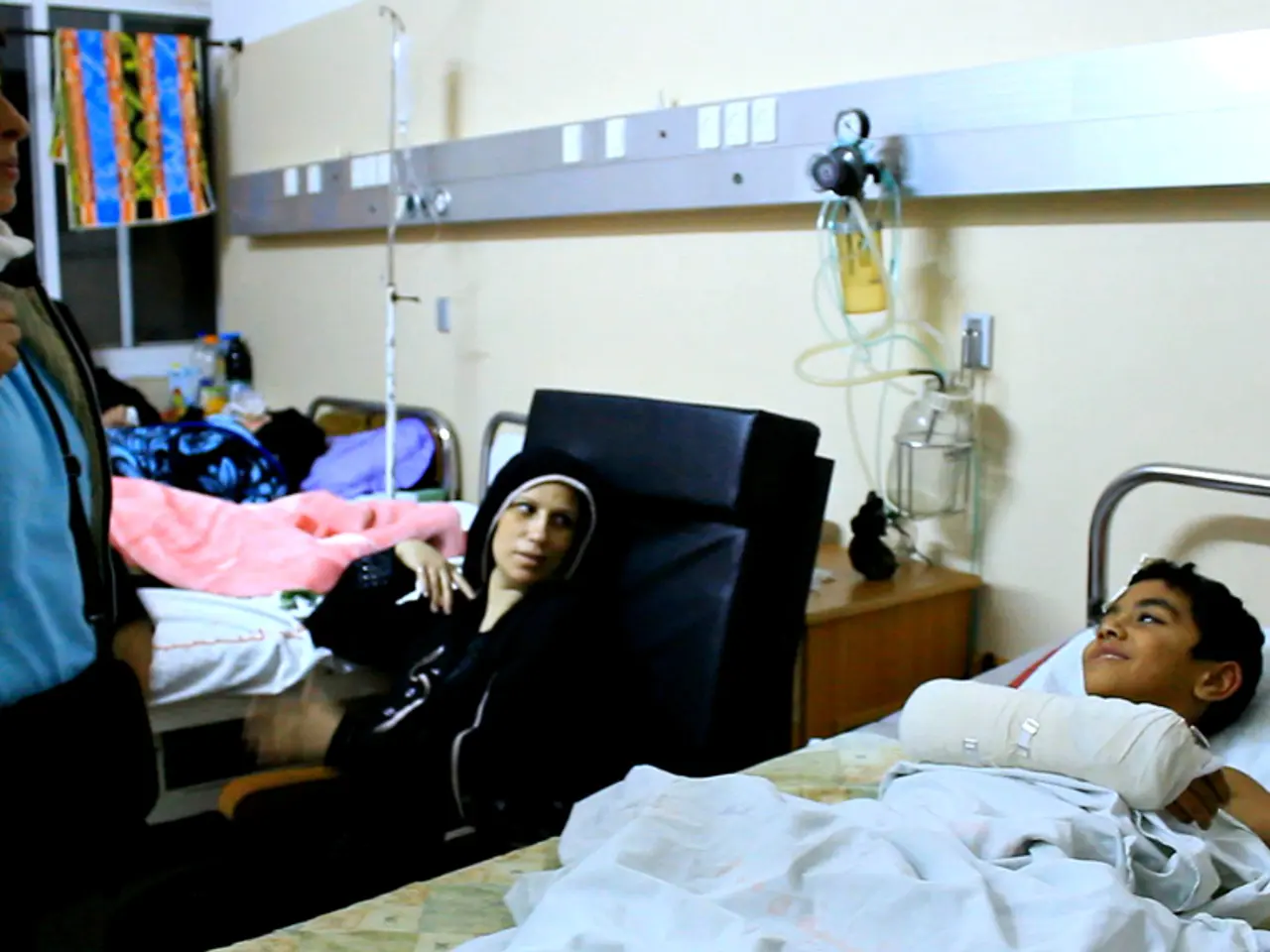Expert training plays a crucial role in the outcome
In the eastern part of the Ludwigslust-Parchim district, a unique approach to medical training is making waves. The LUP clinics in Crivitz, Hagenow, and Ludwigslust are fully equipped to complete the process of becoming a general practitioner, thanks to on-site training programs.
Prof. Dr. Anke Forberger, Medical Director, underscores the significance of training general practitioners on-site. She believes that this approach fosters a deep understanding of rural healthcare, increasing the likelihood of graduates practicing in similar settings.
The extended rural immersion duration is a key contributing factor. Graduates who complete longer rural training programs are more likely to work in rural areas, as these programs foster regional intent and familiarity with rural healthcare. Completing internships or residencies in rural hospitals also correlates strongly with subsequent practice in similar geographic areas.
On-site training helps trainees build strong professional networks and personal connections, increasing their willingness to remain and serve in rural communities. Prof. Dr. Dierk Werner, Chief Physician of Cardiology and Angiology at the Asklepios Clinic Parchim, supports this notion, suggesting that specialist medical training should take place on-site.
Retaining talent is a central issue for the LUP clinics, particularly in terms of medical care in rural areas. René Pfalzgraf, Director of Nursing in the LUP clinics, confirms that many trainees come from the region and have chosen to train there, close to their home.
Prof. Dr. Dierk Werner observes that someone who lives in Parchim because they have done their specialist training there, is likely to stay there. In the LUP clinics, trainee specialists can switch between the houses to receive a well-rounded training.
Networking between clinics in rural areas is also crucial, according to Prof. Dr. Dierk Werner. He highlights the importance of this collaboration in ensuring that all contents of specialist training according to the guidelines of the MV Medical Chamber are covered.
The LUP clinics place a strong emphasis on ensuring the next generation of general practitioners. By retaining locally trained physicians, nurses, and allied health professionals, rural training programs help alleviate chronic staffing shortages caused by geographic isolation and limited professional development found in rural areas. Furthermore, a supportive policy and funding environment, including financial incentives, recruitment efforts, and reduced administrative barriers for rural healthcare facilities, complement training program impacts by improving working conditions and retention.
Overall, evidence indicates that integrating broad, continuous rural medical education—ranging from undergraduate to postgraduate levels—into rural hospitals significantly improves the sustainability of the rural health workforce by producing clinicians likely to remain in those underserved areas.
- The on-site training programs in the LUP clinics, including science education and career development, help foster a deep understanding of rural healthcare, making trainees more likely to practice in similar settings and alleviate chronic staffing shortages.
- In terms of health-and-wellness, fitness-and-exercise, and education-and-self-development, networking between clinics in rural areas, such as those in Crivitz, Hagenow, and Ludwigslust, is crucial to ensure all contents of specialist training are covered and support the retention of locally trained professionals.
- By encouraging regional intent and familiarity with rural healthcare through extended rural immersion duration and on-site training, these programs contribute to the overall goal of improving the sustainability of the rural health workforce, thereby boosting medical-conditions care in underserved areas.




